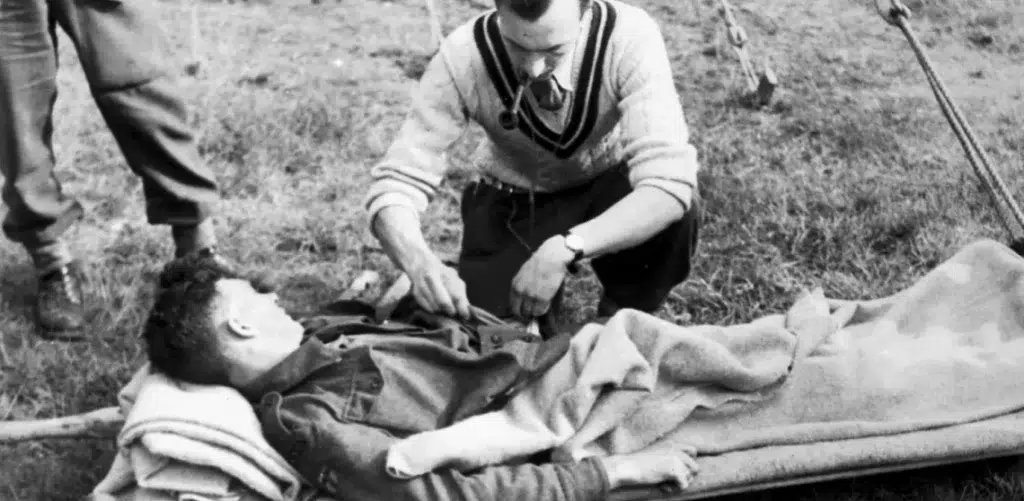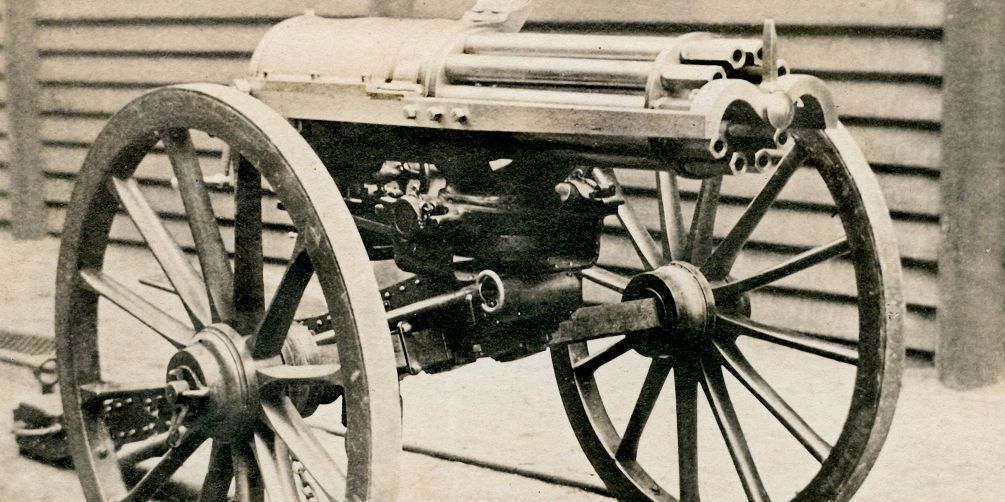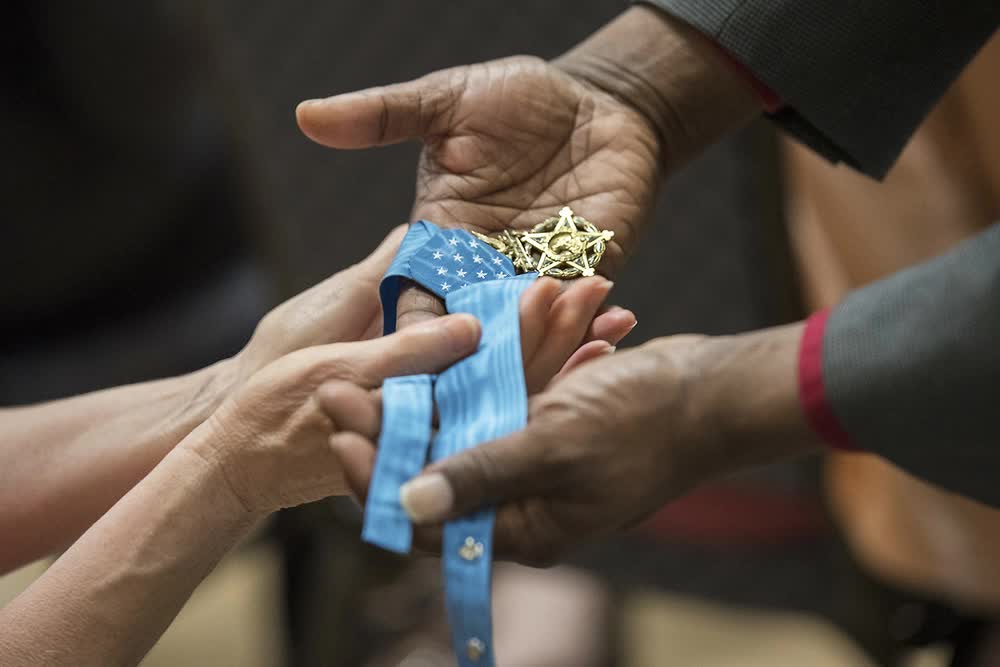Editor’s Note: Sandboxx News presents a World War II series by Kaitlin Oster on the power of hope, letters, and love in seeing us through the terrors and agony of war. You can listen to Kaitlin’s radio interview about the series here or visit her website here.
From the combined lack of food and the summer heat, Harold began to notice the sores on his arms getting worse. One of his teeth had fallen out a week earlier. When he had woken up that morning, he had felt a sharp pain in the side of his mouth. Harold had put his fingers back and felt around, and had found one of his molars very loose and tender. He didn’t know what to do, but figured it was probably infected. Using his thumb and forefinger, Harold had wriggled the tooth around for a few moments until it had come out in his hand. The pain had immediately subsided, and he had discarded the tooth. He had then made his way over to the infirmary to see if there was anything further they could do to help him.
“My boy, you are positively yellow!” The medic on duty seemed to take a step back at Harold’s appearance. It occurred to him that he hadn’t seen a clear view of his own reflection in over a year.
“What do you mean I’m yellow?” Harold looked down and outstretched his hands. In the light of the infirmary, he realized he was, in fact, yellow. He gasped, “What in the hell does this mean?”
“It means you have jaundice, son.” The medic took a few steps over to Harold’s side and lifted his arms, giving him a once-over.
“I just came here on account of my tooth falling out. What made me jaundiced?”
“Hmm, well I don’t know. Maybe the lack of nutrition in this dump?” The medic was sarcastic, but Harold knew it was directed more at the Germans than him. “Tell me, what else are you feeling?”
“Well,” Harold began, “my teeth hurt; one just came out this morning. I feel weak but that hasn’t come to me as a surprise or shock; they don’t feed us. Am I going to be alright?”
“I have to look in the Red Cross kits and send out a couple of requests. I think the British Red Cross gives oranges in their kits; maybe we can trade some things to get you some vitamin C. Just keep hanging in there, son. Let me look at your tooth.”
Related: Letters to Loretta: A series into the power of humanity to persevere during war

Harold had the space where his infected tooth once resided cleaned out, and the medic was kind enough to wrap a couple of the worse sores on his arms. He knew he would have to make the wraps last for at least two to three weeks, but it was better than nothing. He returned to his bunk feeling a little cleaner than normal, but after listening to what the medic had said about his skin and scurvy, Harold realized he wasn’t feeling good at all. Sure, he was playing softball with the other men when the weather permitted, but that didn’t take away the fact that he was still very much deep in POW camp. The medic had told him to rest and wait to see what he could get from the British.
By the following morning, Harold developed a low fever and felt he couldn’t possibly get out of bed. He blamed the Jerry manipulation, of course – minimizing their rations to the point that Red Cross rations had been exhausted only a few weeks earlier in May. He shakily sat up in his bed and grabbed for his tin can in hopes of either finding water in it, or finding water available somewhere else.
“You should sit out in the sun, ya know. It’ll be good for ya, Red.” One of Harold’s bunkmates helped him up and outside of the barracks. He was grateful for the arm and sat down on some steps near one of the buildings.
Harold opened his shirt and saw just how yellow his skin had become. There were some smaller sores on his chest but they weren’t open like the ones on his arms. He gave himself a once over and thought to himself that he looked like ketchup and mustard. Harold chuckled, and then frowned – he hadn’t had ketchup and mustard in almost two years. He thought to himself how awful prisoner-of-war camp really was, for him to miss condiments. The closest thing to a topping Harold now had was if any gelatinous fat was left on top of the poor excuse for meat the Germans were serving them. The thought of it would have made him gag if he wasn’t grateful for the extra calories that came with fat. He closed his eyes and listened to the men play softball – a lucky day for them, the guards didn’t interrupt today.
Related: Weapons used by both sides of World War II

“You Schwerdt? ‘Course you are. Look atcha!” Harold opened his eyes to a large man standing over him. He was very tall and his body blocked out the sunlight that Harold was so very much enjoying. Harold surmised that, from the meat on the man’s bones, he hadn’t been in the prison camp for more than a few months.
“How are you?” Harold extended a hand, but did not get up.
“Better than you!” The man was joking, Harold knew this. He appreciated the banter.
It had been a very long time since Harold was treated so kindly. The man spoke with a boom in his voice that Harold felt was lost to him during his time in Stalag 17B, he just couldn’t remember when. With the man’s help, Harold walked over to his infirmary and was met with the man from the day before who had taken care of his tooth and diagnosed him.
“Ah, Red, good to see you walking about. Get some sun?” He smiled and put his hand in his pocket. “I have something for you. It isn’t much, but it will get the ball rolling. Courtesy of the British Red Cross.” From his pocket, the medic pulled out the most beautiful thing Harold had seen in months – an orange.
He was speechless. He looked at the medic and hesitated. The medic smiled and nodded his head, extending his arm a little further for Harold to take.
“I – thank you.” He began to feverishly peel the orange.
“More where that came from. Waiting on some antibiotics for you. Just keep those wounds wrapped up on your arms. Rest up; we’ll have you ready to play softball again with the guys in no time.” Harold nodded as he ate the orange. It was so sweet – he couldn’t remember the last time he had tasted anything so sweet.
Related: This is how tabasco sauce made it in MREs

It took several weeks after that for Harold to feel like his normal self – whatever normal was. He spent most days in bed, only venturing out to visit the Man of Confidence or the medic tent for a check-up. His bunkmates were kind enough to shove over and make room, giving him the bed to himself as he mended; Harold surprisingly found it difficult to fall asleep in such an empty space. He lay among the scratchy straw, seemingly more aware of the miniscule pitter-patter of bugs around him and more conscious of the labored breaths of hungry, tired prisoners. There was no warmth next to him, no reassurance that life existed close by as he stirred and woke in the middle of the night. There was no one to suffer beside. He was so accustomed to the overcrowding of Stalag 17B – of having to quietly push past men sometimes to get to where he needed, or waiting impatiently for a water ration or to use the latrines outside. Of course, the latrines were completely dismantled, and the men were relieving themselves in holes in front of each other, but they kept their dignity by maintaining the bathroom pits, and everyone waited their turn.
He thought often of Loretta over those few weeks, of penning a note home to tell her everything was alright, and that he was feeling much better. Every time Harold reached for a pencil, though, he stopped, finding himself unable to put on the same mask he had worn for the past year. He didn’t know if he could trust his own hand to tell her that things were swell, that he played some softball, or that he learned something new. What he wanted to say was the truth – that he almost died – more than once – that he saw men beaten and killed, that she probably wouldn’t recognize him when she saw him.
When she saw him.
September 5, 1944
My Doll;
It’s another one of those nights that I just can’t stop thinking of you. I love you so much doll, that I eat my heart out with every thought. Those detailed memories of you hurt until my heart is numb with pain, and yet, they are my only salvation.
All my love,
Ha
Read more from Sandboxx News
- Operation Olympic Games: The first cyberweapon
- The favorite games of BUD/S instructors that SEAL candidates suffer through
- Garrett STAMP – The Marines nearly got a weird flying jeep during the Cold War
- Appearance is everything in the age of digital warfare
- F-35 versus A-10 showdown revived as new documents come to light



